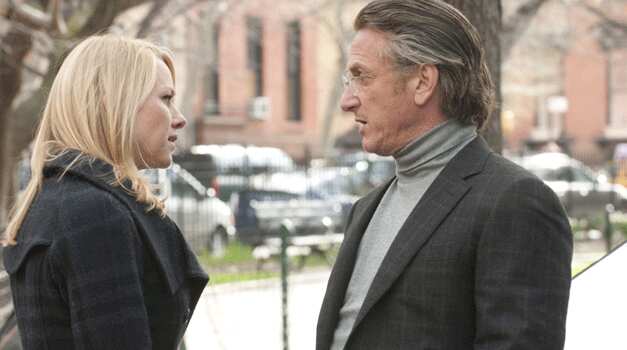The grubby tactics of Realpolitik hit home with a literal thud in Fair Game, as a family grapples with the repercussions of having its matriarch outed as a covert CIA operative.
Director Doug Liman dramatises the Valerie Plame scandal of 2003 in which top-level Bush Administration officials blew weapons expert Plame’s cover, to silence dissent in the lead up to the invasion of Iraq.
The proudly partisan screenplay (by Jez and John-Henry Butterworth) adapts both Plame’s autobiography and that of her husband, career diplomat Joe Wilson, to examine the complex consequences of finding oneself collateral damage in the War on Terror.
Liman wastes no time in dropping us into his heroine’s bizarre dual existence: At the height of the ill-fated UN inspection program that seeks evidence of Saddam Hussein’s WMDs, Plame (Naomi Watts) leads the CIA’s Joint Task Force on Iraq, charged with intercepting the sale and carriage of nuclear weapons components on the black market. We observe Plame walking the talk in Kuala Lumpur as she 'flips’ a would-be informant, but mere days after being manhandled in Malaysia, she’s back in the US at a suburban dinner party, assuming the guise of the tut-tutting wife of outspoken dinner party-pooper Joe Wilson (Sean Penn). Retired ambassador Wilson’s unbridled rage at a friend’s casual racism provides the first glimpse of his aggressive problem-solving skills, and sits in sharp relief to his wife's reluctance to rock the boat.
Valiantly, Plame tries to keep the plates spinning above her head, bickering with Wilson about her torn responsibilities before flying out to negotiate with defecting Iraqi scientists. She tells a sceptical collaborator that "you have to know why you’re lying, and never forget the truth." This is one of the film’s many instances of pithy dialogue that speak for the moral compass that guides her through a heady network of damned lies, statistics and known unknowns.
The collision between the personal and political occurs when the White House relies on faulty evidence about a supposed uranium trade between Niger and Iraq. It was Wilson who had debunked the theory, so the infuriated diplomat vents his spleen at the Bush Administration’s flimsy logic in op-ed pages. In a high stakes game of tit-for-tat, it's Plame’s name that gets outed in a high-level leak. The ensuing blaze of publicity causes the couple go to their respective corners – Wilson launches an assault by media whilst the blindsided Plame goes into damage control.
Watts injects welcome 'ordinariness’ to offset the potboiler potential of the source material. After years spent playing second fiddle to a series of international men of mystery (Viggo Mortensen in Eastern Promises, Clive Owen in The International), she holds her own as a spy hung out to dry in the cold, and Penn offers reliable support as the feisty provocateur to whom she’s married. Supports are generally excellent across the board, and David Andrews is a standout as the Machiavellian big mouth Scooter Libby. (His knack of asking the same question until he gets the intended answer, is an excellent metaphorical moment.)
Liman has a natural inclination towards cloak and dagger stories of international spydom. (A natural consequence, perhaps, of having a father who was the chief prosecutor in the Iran-contra hearings.) He directed the first Bourne film and produced the other two, and later skimmed the surface of the domestic lives of the covert and dangerous in Mr & Mrs Smith. In Fair Game he dispenses with the pure popcorn fare and offers instead a restrained contemplation of a marriage in meltdown in the midst of an international incident.
Watch 'Fair Game'
M
SBS Australia, 9.40pm Friday 23 February
SBS On Demand after broadcast
SBS On Demand after broadcast
